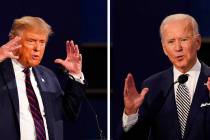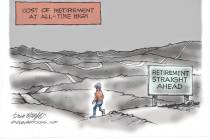Free speech and ‘Hillary’
Earlier this year, the U.S. Supreme Court heard arguments in the case Citizens United v. FEC -- "Hillary: the Movie."
The case hinges on a provision in the 2002 McCain-Feingold campaign finance law that bans "election communications" funded near an election.
The producers of the documentary "Hillary, the Movie," wanted to make it available as an "on demand" movie viewable on cable television during the 2008 race for the presidency.
But -- despite the fact cable TV is generally held to be far less subject to federal interference than broadcast television, which uses the "public airwaves" -- federal courts ruled the movie, financed partly with funds from unnamed corporations, violated the 2002 McCain-Feingold law.
Deputy U.S. Solicitor General Malcolm Stewart, defending the law, told the high court the Constitution not only allows the restriction of such a "documentary" message when offered "on demand," but that (if intended to inform voters and thus affect their behavior at election time) it could also be acceptable for the government to censor such expressions of political fact or opinion on the Internet, on a DVD, in a book, or even at a public library.
Good grief.
This appears to have gotten the court's attention.
On June 29, the high court announced it would re-hear the case in September, asking attorneys on both sides to address two key Supreme Court precedents that have so far upheld the federal election law, asking specifically whether the high court should "overrule either or both."
It's hard to avoid the conclusion that a number of the justices -- possibly led by Clarence Thomas and Antonin Scalia -- have finally concluded that "If the law says that then the law is a ass," that the bulk of McCain-Feingold simply cannot be made to conform with the First Amendment guarantee of free political speech, that they now finally seek an opportunity to do what they should have done long ago -- throw most or all of this abomination out on its ear.
The court is generally reluctant, of course, to reach for a remedy beyond what either appellant has asked for. It now asks, in effect, "Give us some reasons to finally drag this thing out behind the barn and shoot it."
Some may worry that Supreme Court nominee Sonya Sotomayor -- such a passionate advocate of campaign finance regulation, as revealed in her Suffolk University law review article, that some have questioned whether she could remain impartial in such a case -- could forestall such a move. In fact, should Judge Sotomayor replace David Souter, that probably represents no change in the court's split.
Federal police exercising prior censorship on what can be said, when, and by whom, about our political candidates and campaigns is a deadly constraint on the kind of free political speech guaranteed by the First Amendment. Let's hope the high court follows through boldly.























